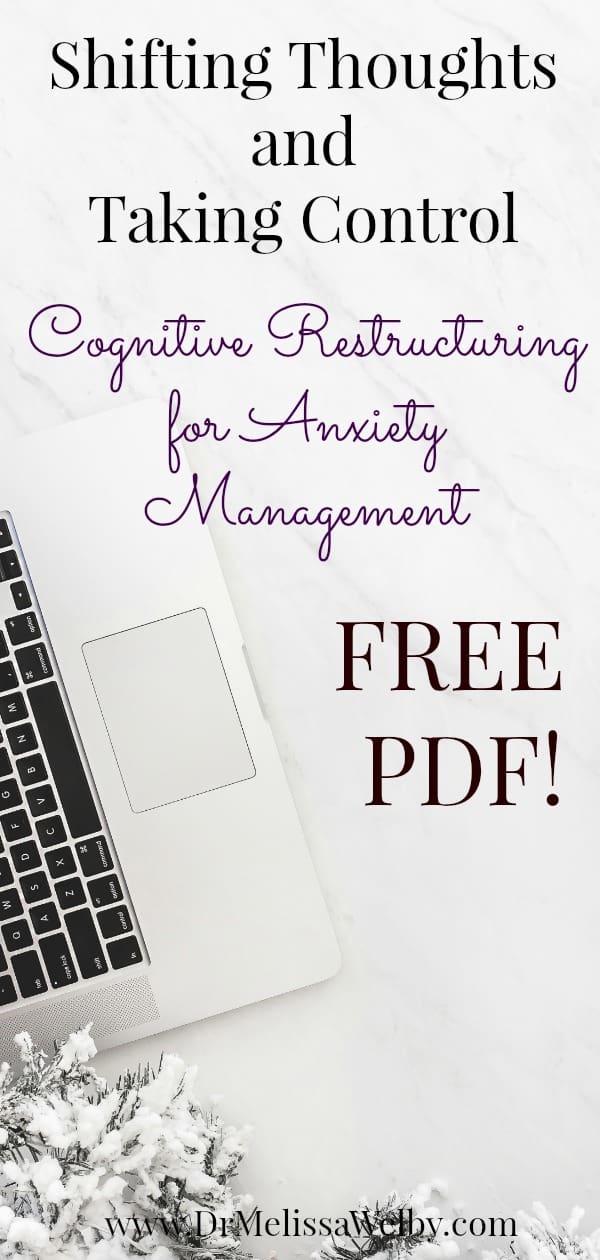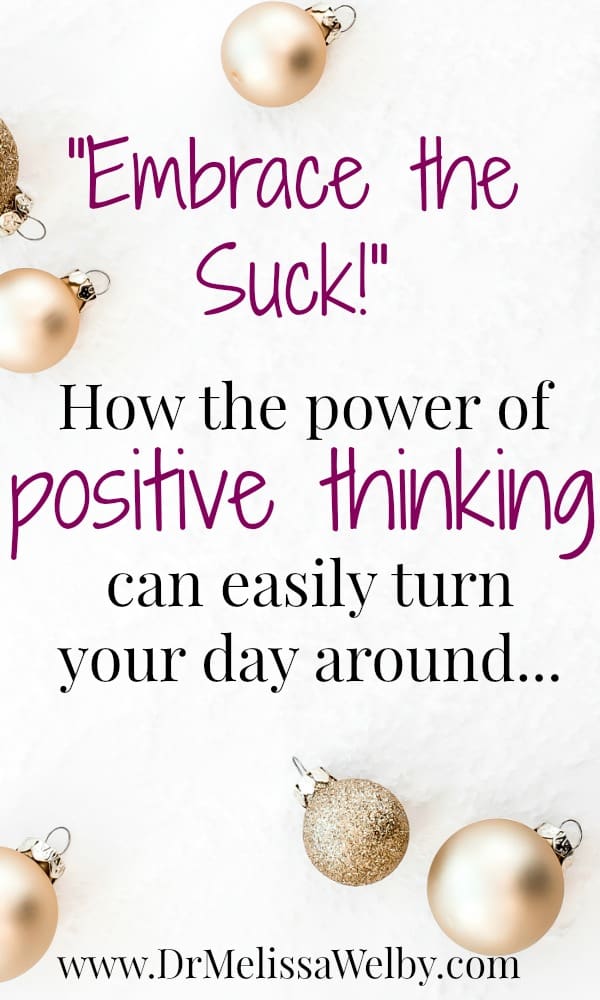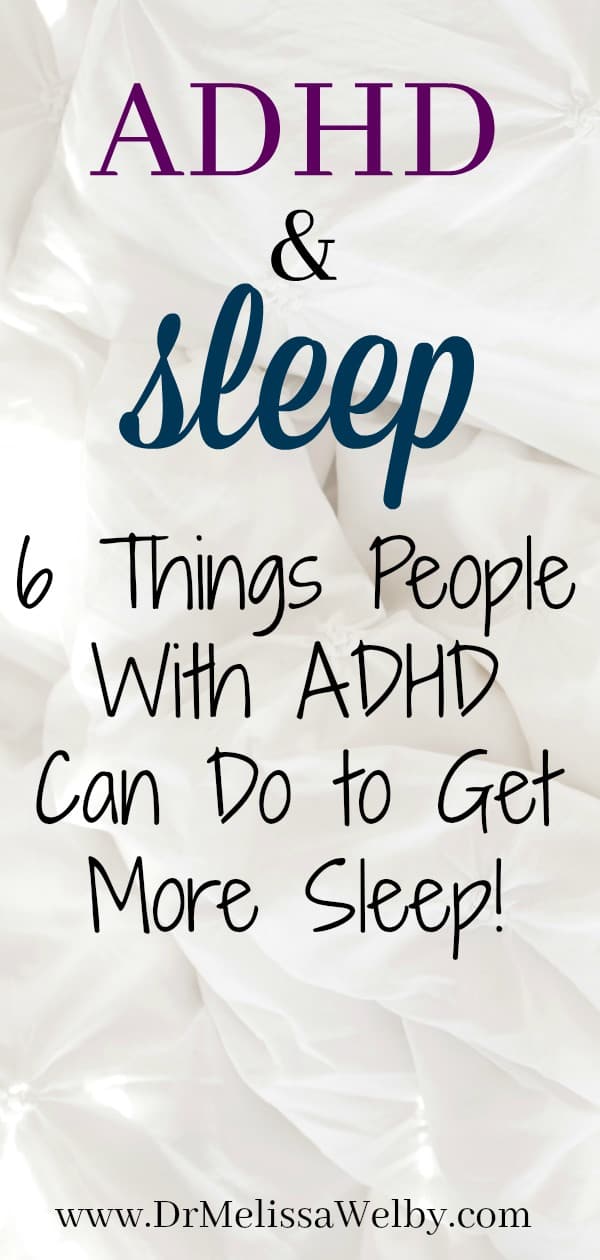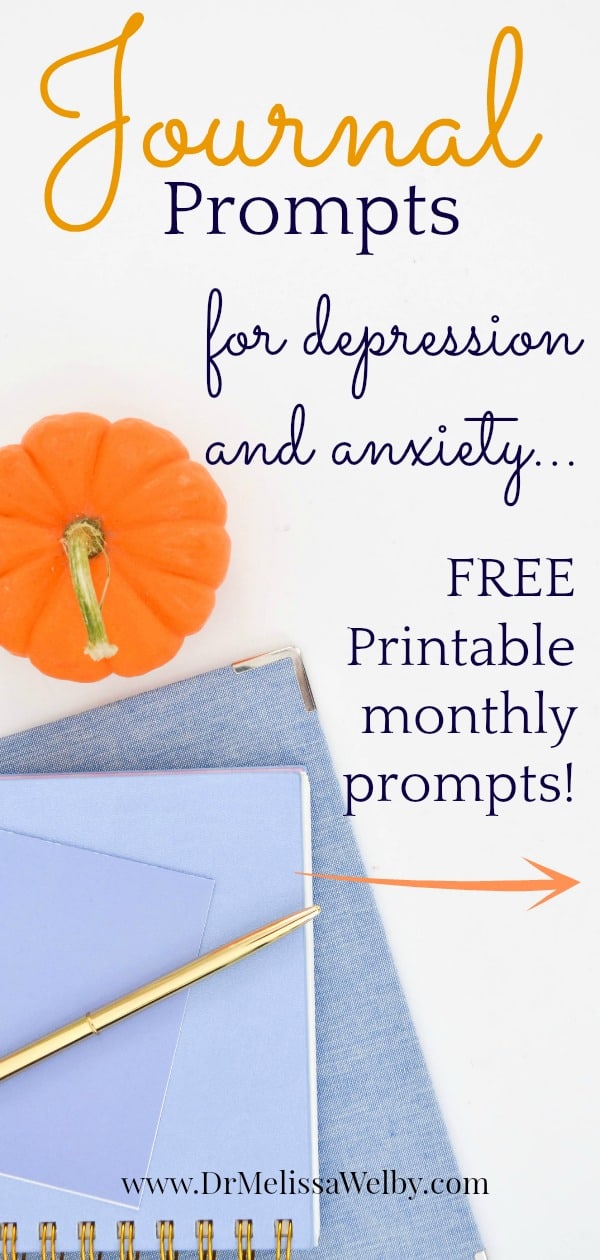Well done, author Michael Hall. I am impressed. Red: A Crayon’s Story takes the complicated subject of living authentically and successfully sums it up in a story about a mislabeled crayon who discovers the secret to a happy life. In this picture book targeted to preschoolers, he somehow addresses complex narratives in life that many adult books struggle to get across. The story covers the underlying message of love and acceptance so smoothly the reader doesn’t feel lectured to but instead is enthralled by the story of Red’s attempts to live true. With a handful of words, Red teaches us about:
Category: Blog
Shifting Thoughts and Taking Control: Cognitive Restructuring for Anxiety Management
Anxiety management and recovery require recognizing anxious catastrophic thinking when it is happening (read here for more details). Once recognized, you can reduce anticipatory anxiety by changing thoughts and interrupting projections. Break down these thoughts and create a framework to analyze them with cognitive restructuring techniques.
First, let’s review some definitions.
Anticipatory anxiety is all the time wasted dreading, worrying, and panicking over a future event (a projection of an imagined outcome) where every imaginable negative outcome is thought of (catastrophizing). Cognitive restructuring techniques are tools to help break down these thoughts and analyze them using a series of questions. These questions help to identify when a cognitive distortion (a thought that isn’t accurate or based in current reality) is driving your anxiety.
“Embrace the Suck” How the Power of Positive Thinking Can Turn Your Day Around
Tonight, on the way home from work I was sitting in stopped traffic, wet from being caught in a downpour, and feeling hungry. I wasn’t super excited about my predicament until I noticed the bumper sticker on the car in front of me:
“Embrace the suck”
I wouldn’t normally give a bumper sticker much thought but tonight I was going nowhere fast and had the time. It made me crack up. What a great way to knock me out of a negative moment. Why fight it? It wasn’t going to help me get home quicker.
Would You Do 23andMe Genetic Testing?
Have you thought about getting 23andMe genetic testing done? I recently did a 23andMe test and had a lot of fun with the results. However, I was surprised by the amount of information that a genetics test includes on health risks and carrier status (I’ll define this below). It sure has evolved from just a fun way to find out about your ancestry. Going through this process has made me curious: How do you feel about knowing your risks? If your DNA genetic testing showed a higher risk for certain health conditions would you change your life including altering your plans to have children if you were a carrier? Would your results potentially take away some of your life enjoyment?
Catastrophizing Anxiety
We all know what a catastrophe is but what about catastrophizing? Catastrophizing is a common occurrence in people that are feeling anxious. Catastrophizing is caused by anxiety but also serves to fuel anxious symptoms. Because of the cyclical worsening that happens with symptoms of anxiety it is important to interrupt this cycle. People stop living in the moment and spend much of their time worrying about the future.
Feeling anxious?
An anxious person can turn almost anything into a possible catastrophe.
2 Simple Things You Can Do to Support Gender Nonconformity in Children
ALL CHILDREN, not only gender nonconforming children, are at risk when their sense of identity is discouraged or disallowed. Parent and family acceptance offers CRITICAL protective factors that lead to short-term and long-term healthier outcomes. The benefits of allowing people to be who they are (ie gender nonconformity in children) is supported by research…although it is also a no-brainer. Gender diversity is not pathology. It is not disorder, but identity.
ADHD and Sleep: 6 Things People With ADHD Can Do to Get More Sleep
Sleep is an essential ingredient for a fully functioning, well-performing brain. In particular, it can assist in boosting moods, increasing focus, improving concentration, and helping with general health and well-being. For people with ADHD, lack of sleep can contribute to an increase in the symptoms of ADHD. Sleep and ADHD often don’t go well together- difficulties with sleeping are common with ADHD. Get more sleep by using these 6 simple tips. ADHD and sleep problems don’t have to go hand in hand!
Top Books on Executive Functioning Disorder
The last 2 posts I wrote are geared to empower people to take charge of their executive function skills (or help guide their loved one to do the same). In this post, I will cover my top recommendations for books to increase executive functioning strategies. Books on executive functioning disorder can provide new ideas for how to work more efficiently, effectively and make navigating life easier. This post includes recommendations for executive functioning books targeting 4 different groups: adults, parents, teens, and children.
Journal Prompts For Depression and Anxiety
This post may contain affiliate links which means I make a small commission at no extra cost to you.
This post today is written by an awesome guest blogger who has experienced anxiety and wants to let us know what she has found helpful. Megan realized she can successfully stay on track and feel calmer by using journal prompts, specifically using journaling prompts for depression and anxiety. Journal writing, in general, is a helpful exercise for many but adding focused journal prompts can incorporate reminders for how to keep moving forward and decrease anxiety and depression.
The Ultimate Guide: 15 Tips to Improve Executive Function Disorder
Are you someone that struggles to stay organized? Has trouble following projects through to completion or even getting started? Is chronically late and forgets things that need to be done? Challenges with executive functions can wreak havoc but there are tools that can help compensate. Read my first post in this series for detail about executive functioning skills and executive dysfunction symptoms. This 2nd post covers options for executive function disorder treatment…or at least tips to create workarounds that can make life easier.




















